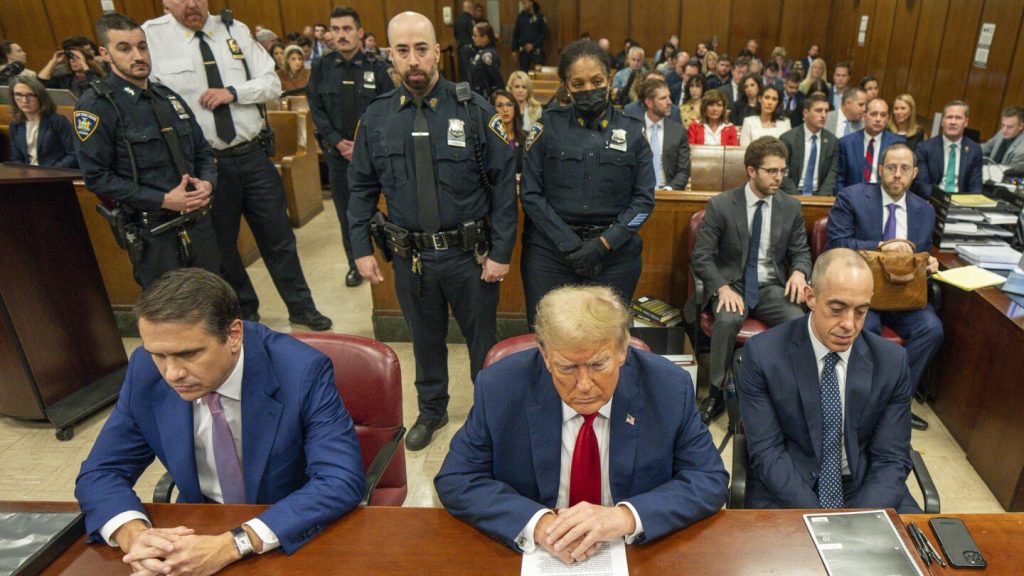The hush money trial of former President Donald Trump is nearing its conclusion, with testimony wrapping up and jury deliberations on the horizon. This historic case could result in a mistrial, an acquittal, or potentially the first felony conviction of a former American president. The prosecution has charged Trump with 34 counts of falsifying business records in relation to a hush money scheme during the 2016 presidential campaign.
The prosecution has presented a case linking Trump to payments made to two women and a doorman to keep quiet about potentially embarrassing stories during the campaign. Witnesses, including a porn actor, a tabloid publisher, and Trump’s former aides, have testified to support the allegations. Actor Stormy Daniels detailed a sexual encounter with Trump in 2006 and recounted being offered money to stay silent. Trump’s former lawyer, Michael Cohen, also testified, claiming Trump directed the hush money payments to protect his campaign image with female voters.
Trump’s defense team has yet to call witnesses but has cast doubt on the prosecution’s case through aggressive cross-examination. They have challenged Daniels’ story, suggesting she made it up, and argued that Trump, as a celebrity, was vulnerable to extortion. Cohen, the star witness for the prosecution, was grilled extensively about his credibility, past lies, and personal biases. The defense suggested he was seeking fame through his testimony and painted him as unreliable.
Notable figures like Karen McDougal, a Playboy model, Trump’s bodyguard Keith Schiller, and Allen Weisselberg, Trump’s former CFO, have been mentioned in court but have not testified. Weisselberg’s absence is significant as he was allegedly present during a key Trump Tower meeting where the hush money reimbursements were discussed. This meeting is crucial to the prosecution’s case as it directly ties Trump to the fraudulent payments that are central to the charges.
For a conviction, prosecutors must prove beyond a reasonable doubt that Trump falsified business records with the intent to commit or conceal another crime. They allege that the payments to McDougal, Daniels, and the doorman violated campaign finance laws and were meant to conceal damaging information from the public during the election. The case also touches on breaches of campaign finance law and a violation of state election law. The jury will need to reach a unanimous verdict to convict Trump of the felony charges he faces.
As the trial nears its end, both sides will present their closing statements, summarizing their arguments for the jury. The outcome of this trial could have far-reaching implications for Trump and set a precedent for how former presidents are held accountable for their actions. The verdict will be eagerly awaited by many as it could determine whether a former president will be convicted for the first time in American history.


